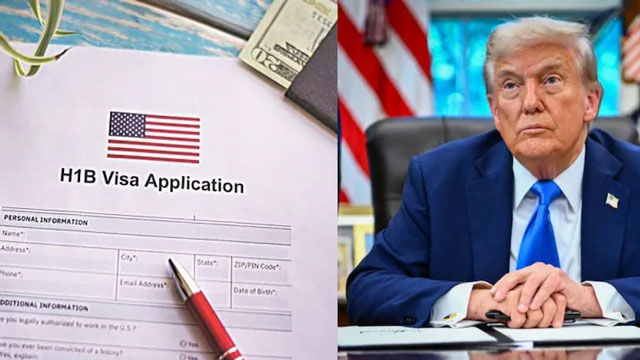Daijiworld Media Network - Washington
Washington, Oct 10: The Donald Trump administration is moving to overhaul the H-1B visa programme, proposing stricter regulations that could affect thousands of high-skilled foreign workers, particularly from India. The Department of Homeland Security (DHS) has listed a regulatory agenda under the title “Reforming the H-1B Nonimmigrant Visa Classification Program”, aimed at tightening eligibility, increasing employer scrutiny, and imposing greater oversight on third-party placements.
The proposed changes go beyond the previously announced $100,000 mandatory fee, potentially narrowing exemptions for nonprofit research organisations, universities, and healthcare institutions. According to DHS, the reforms are “intended to improve the integrity of the H-1B nonimmigrant program and better protect US workers’ wages and working conditions.” The rule could be formally published as early as December 2025.

Earlier reports suggest the administration may also replace the traditional H-1B lottery with a wage-based selection system, prioritising higher-paying positions.
Why the H-1B Visa Matters
The H-1B visa is a temporary work permit for high-skilled foreign nationals, primarily in technical fields. It allows companies in the US to hire professionals with skills that are difficult to find domestically. The programme, established under the 1990 Immigration Act, issues 65,000 visas annually, with an additional 20,000 for individuals with US master’s degrees or higher. Some employers, such as universities and nonprofits, are exempt from these limits.
Nearly 75% of H-1B approvals in 2023 went to Indian nationals, with 60% or more of visas allocated to computer-related jobs. Other sectors, including healthcare, banking, and academia, also employ H-1B visa holders.
H-1B holders are generally paid at least the prevailing wage for their role, which often matches or exceeds salaries for comparable US employees. Alongside the government fees exceeding $6,000, employers are legally required to pay wages that reflect American standards.
The proposed reforms are expected to significantly impact Indian students and young professionals planning to work in the US, adding uncertainty to career and immigration plans.